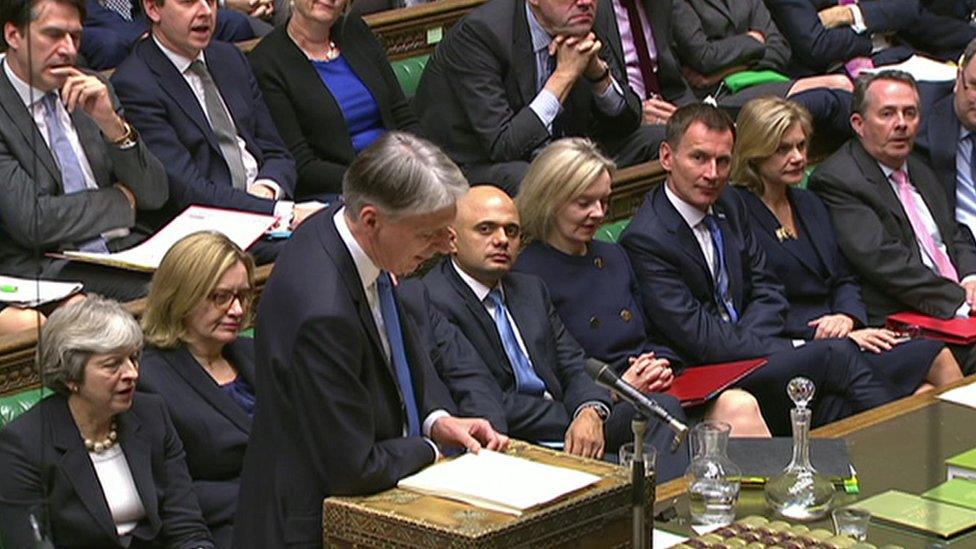Budget 2017: No political drama from 'Box Office Phil'
- Published

It wasn't a drama - it wasn't a Budget that would inspire queues at the Box Office.
No surprise. When "Box Office Phil" was given that nickname, it wasn't because he has a reputation for delivering political thrillers.
What he tried to do was to act on concerns expressed at the general election and by rebels on the Tory backbenches as well as the Labour opposition.
So there were changes to the universal credit benefit, some, but certainly not all the money the NHS says it needs - and an enormous sounding figure of £44bn for housing over the next five years (although vital to wait for the detail of how much will go to getting spades in the ground, and how much will guarantee loans for the housing industry).
But he made a bigger-than-expected move to "revive the home-owning dream" by scrapping stamp duty on the first £300,000 of any property bought by a first-time buyer.
The prime minister has set her own personal reputation on fixing the housing crisis, so there is a lot riding on the mixture of moves that has been promised by Philip Hammond today.
He also responded to pressure from Brexit-backing colleagues in cabinet, by putting aside an extra £3bn to plan for a "no deal" scenario.
What the chancellor also tried to do was to claim that somehow a corner has been turned in the long-term battle to sort out the country's books, with debt peaking and starting to fall as a share of national income.
But it will be tricky for the government to escape the overall picture: that the economy looks like it will be more sluggish, will grow more slowly and will be less productive than expected for some time to come.